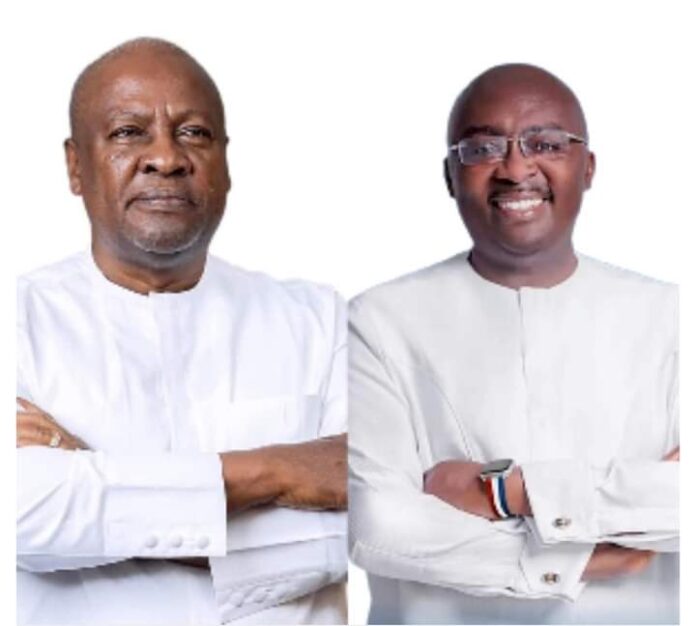Security consultant, Prof. Kwesi Aning, has dismissed concerns about potential violence in the 2024 elections, asserting that both major presidential candidates, John Mahama of the National Democratic Congress (NDC) and Dr. Mahamudu Bawumia of the New Patriotic Party (NPP), have demonstrated a commitment to peace.
He argued that while political extremism exists within both parties, the leadership of Mahama and Bawumia has consistently signaled peaceful intentions through their actions and rhetoric.
In an interview on JoyNews’ Newsfile on Saturday, November 30, Prof. Aning explained that both candidates’ “behavior over time has created not just an impression but a well-founded notion that they are not going to hurt or harm any Ghanaian just to be in power.”
“I’ve challenged all those who have said it’s going to be more violent, both Mahama and Dr. Bawumia have not acted anything in the last probably 24 months that can be construed as inciting people to violence,” he said.
Prof. Aning’s comments come in response to recent remarks by British High Commissioner, Harriet Thompson, who expressed concerns that the 2024 elections might be less peaceful than previous ones.
However, the security consultant challenged this perspective, stating, “2024 will not be less peaceful. Both leaders have shown they are individuals of peace, and their signaling matters significantly in keeping their parties in check.”
He acknowledged the presence of extremists within both major parties who might resort to unlawful behavior in their bid to secure power. However, he stressed that the responsibility of the leadership in denouncing and preventing such acts is critical.
“Travel around this country, talk to ordinary people. You’ll notice that they are not interested in fighting or destroying their livelihoods for political gain,” he added.
He also highlighted systemic challenges, including public mistrust in key institutions such as the judiciary and the Electoral Commission (EC), as revealed by recent Afrobarometer reports.
According to him, addressing these trust deficits is crucial for maintaining public confidence in the electoral process.
ALSO READ:

